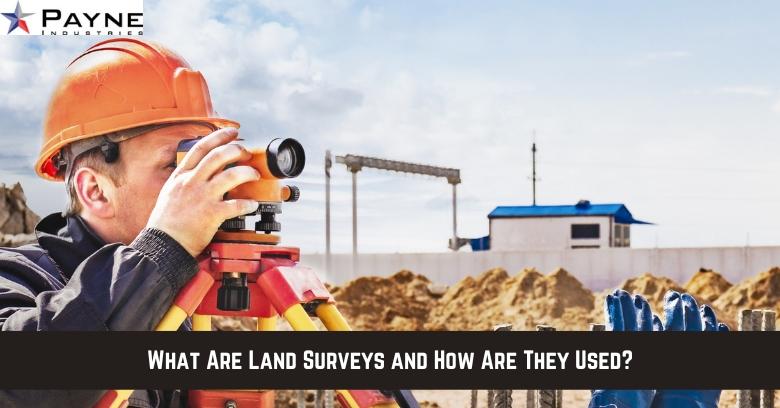Land surveys are essential documents that are required for land transactions of any type to be considered legal.
Performed by professional surveyors, these real estate survey records are done using a variety of techniques to collect and document distinguishing features for a parcel of land so it can be identified and tracked over time.
Continue reading to learn the basics about land surveying and its purpose for owners of real estate in Texas and throughout the United States.
What Are Land Surveys?
Land surveys are records that document the size, shape, and physical characteristics of a parcel of land.
They are done by recording the locations and positions of different land features and markers which are collectively used to describe the property for legal recording purposes.
Performed by experienced land surveying companies using specialty equipment including GPS and various architectural and measurement tools, they are a recognized way to identify land parcels for a variety of purposes based on previous surveys that have been kept on record by each county.
What Types of Land Surveys Are Done?
While the most frequently requested surveys are land title surveys and boundary surveys that locate boundaries and property lines, numerous other specialty assessments can be done to gather additional information and satisfy different needs.
Among them are topographical records to document the physical features and elevations of the land, route surveys to locate rights-of-ways and easements, construction surveys for planning out new construction projects, subdivision surveys for dividing up a parcel of land for subdivision, and floodplain assessments to name a few.
All of these various land surveys use physical markers, written legal descriptions, mapped symbols, and physical survey markers and monuments in the ground to verify existing records and document new changes that affect the land as time passes.
What Are The Reasons That Land Surveying Is Done?
The most common reason for doing land surveys is to confirm property lines and boundaries during a real estate sale.
Land title surveys verify that the parcel of land being transacted meets the description of that which is on the property deed, a detail that requires legal confirmation to protect land buyers, mortgage companies, and title insurance companies.
The second most common reason why average homeowners might seek land surveying, usually a boundary or easement survey, is to solve disputes over property lines, fence ownership, rights-of-way disputes, and similar concerns.
Other assessments, like topographical and flood surveys, are used to document the shape, elevation, and condition of a parcel of land to facilitate land development, conservation, or other needs.
Land developers may also use construction and subdivision surveys, which combine the focus of different topographical and boundary surveys, to plan out a new construction project including what modifications must be made to the land and how it must be completed.
Hire A Land Surveying Contractor For An Accurate Survey
Whether purchasing a parcel of personal land, dividing a parcel for development, or simply looking to resolve a fencing dispute, land surveys are a critical and exacting tool that serve many purposes.
No matter what type of survey a Texas property owner requires, they must hire a professional surveyor to do it for them.
An experienced, local land surveying company will have the knowledge, equipment, and expertise to produce an accurate and legal survey that suits their needs.





